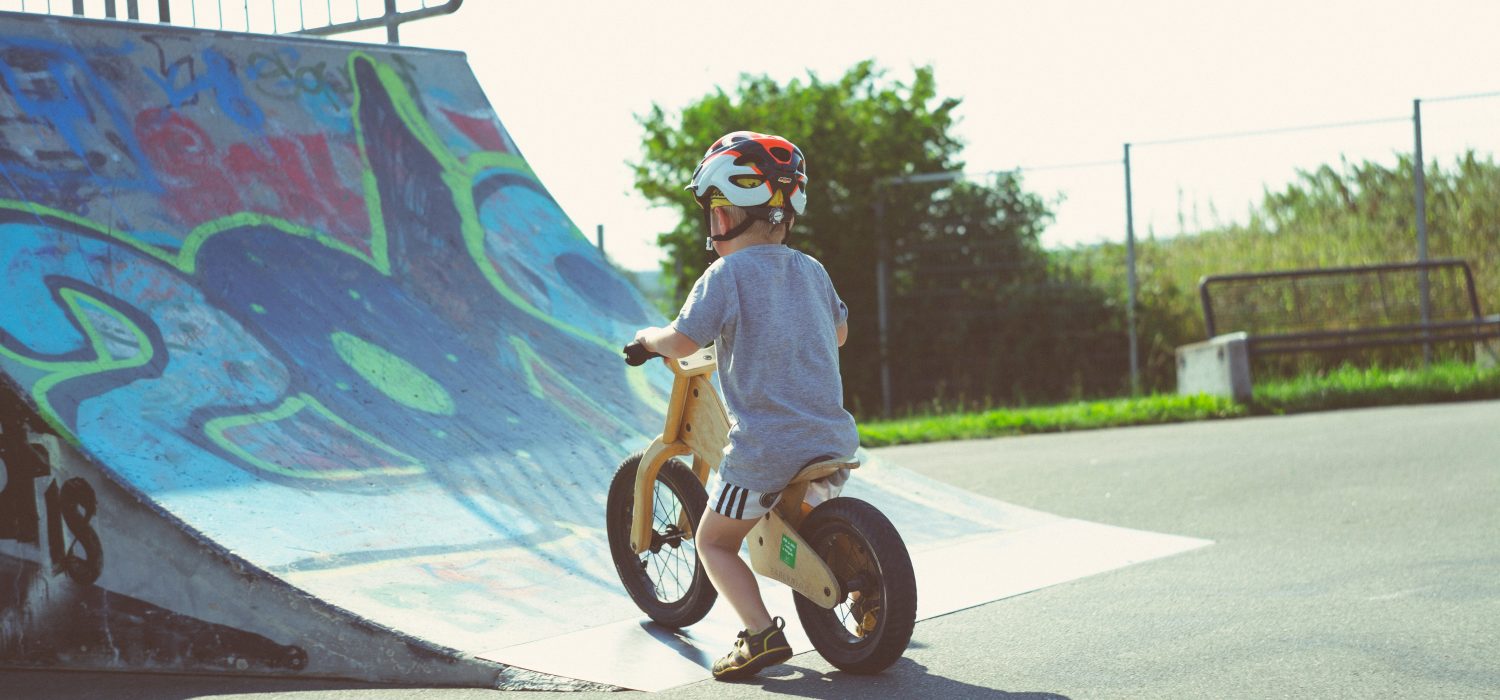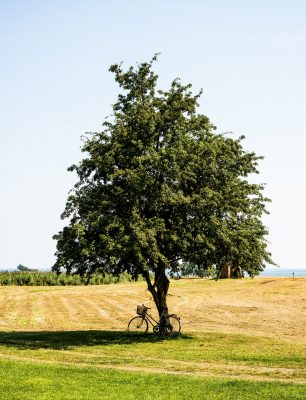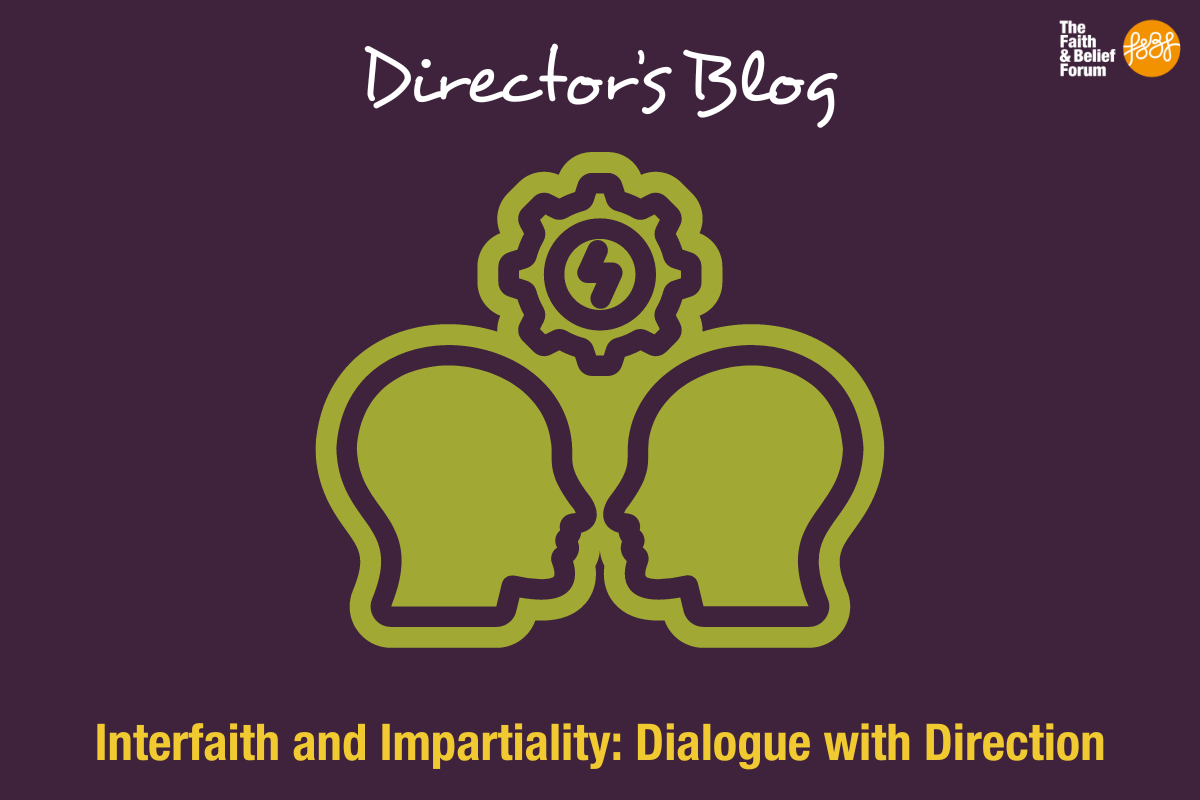
Challenging Faith Based Hate: True Stories
16 / 02 / 24
Menu

27 / 01 / 21

On the eve of Holocaust Memorial Day and the Jewish Festival of Tu Bishvat, our Fundraising Manager Josh Cass reflects on nurturing childlike hope in the face of great challenges…
There was something of bike shortage during the summer, you might have been aware. As lockdown set in, there was a surge in people buying bikes and getting active. However, rather than being organised, I was one of those parents who couldn’t get their hands on a bike for our eldest so when a bike was acquired, it was already end of the summer and we were heading back to school.
We began getting on the bike in earnest late in the autumn, our son was keen to do so, and even though I thought with winter approaching that now was not the best time, with swimming classes no longer happening, it felt a good way to get some exercise. I didn’t really imagine that he would commit to it. Of course, I was wrong which only shows how much I know about how a seven year old thinks.
Last weekend I found myself walking briskly (because I could no longer run!) behind him as he peddled off down the road. “This”, I told myself, “was one of ‘those’ parenting moments… when your child achieves a measure of independence… one of those moments which, as a parent, you don’t really believe exists, but which nonetheless arrive – first steps, first day at school, moving out – and on they go.”
I tried to imagine how he was feeling. The feeling of mastery, of having learnt a skill, of the speed, and the sense of freedom, the invincibility, the possibility. I couldn’t help but think about the world around him though: the anxiety and sense of loss that so many feel right now is all around us. But more than that, the sense of global crisis which looms – of the climate emergency and the untold suffering unfolding. I was desperate to stay in the moment, to feel his joy and his pride in being able to do and be, and to try to imagine the feelings and ideas he was experiencing even though he might not have the words to describe them.
“I can cycle to see my grandparents now, and it will be so quick!”
“That shop where they sell the drinks I love is only a short ride away!”
Suddenly the horizon is much closer and with that comes the ability to explore and understand the world a little better.

Later this week it is Tu Bishvat, the Jewish New Year of the trees. To our contemporary imagination, the notion of a new year, or a birthday for trees can feel rather quaint and a little daft. It has its roots, so to speak, in the Biblical land of Israel. On entering the land after the Exodus from Egypt and the wandering in the desert, the Jewish People received a host of commandments and laws. One of them, as laid out in the book of Leviticus, referred to the prohibition around eating fruit from fruit trees. Farmers were commanded that for the first three years after planting fruit trees that the fruit was not to be eaten, in the fourth year the fruit was to be offered to God, and only the fruit of the fifth year, and all subsequent years, was to be harvested and be the property of the farmer. At this point the Rabbis established a birthday for all trees (the fifteenth day of the month of Shevat) regardless of when the tree was actually planted so as to make life a little easier for farmers and calculations.
In the Jewish tradition, planting a tree is an act of hope. One tradition has it that at the birth of a child the parents should plant specific trees which will one day contribute to the construction of the chuppah, the canopy, under which Jewish marriages take place. (For those interested, it was a cedar for a boy and a cypress for a girl.
For me, hope is about the belief that tomorrow holds more possibilities than today, that better days lie ahead. But hope requires action, for me, hope demands our active involvement. There is a Talmudic story which goes like this: a traveler once came across an old woman planting a carob tree. The traveler asked “How long will it take to bear fruit?” “About 70 years” the woman replied. “So you think you will live long enough to taste its fruits?” The woman explained, “I have found ready-grown carob trees in the world. As my forefathers planted them for me, so I plant for my children.”
This year, Tu Bishvat coincides with Holocaust Memorial Day in the UK, 27th January. I didn’t know until I sat down to write this, but in 1943 teacher Irma Lauscher planted a silver maple tree in Theresienstadt Concerntration camp. The tree was nurtured by some of the 15,000 children who were deported (and murdered) there, until liberation, upon which the survivors placed a sign at its base reading: “As the branches of this tree, so the branches of our people!”. What a startling act of hope in the face of suffering on a scale that is unimaginable.
So, this week, when we remember the those who were persecuted simply for who they were, when we think about the hatred and prejudice that is still so present in society, and at a time when multiple crises seem to loom in all directions, I am also going to try to think of my son, peddling off, and his optimism and excitement about the world, and to believe as he does, that the world can be a better place.

16 / 02 / 24

15 / 02 / 24

16 / 01 / 24